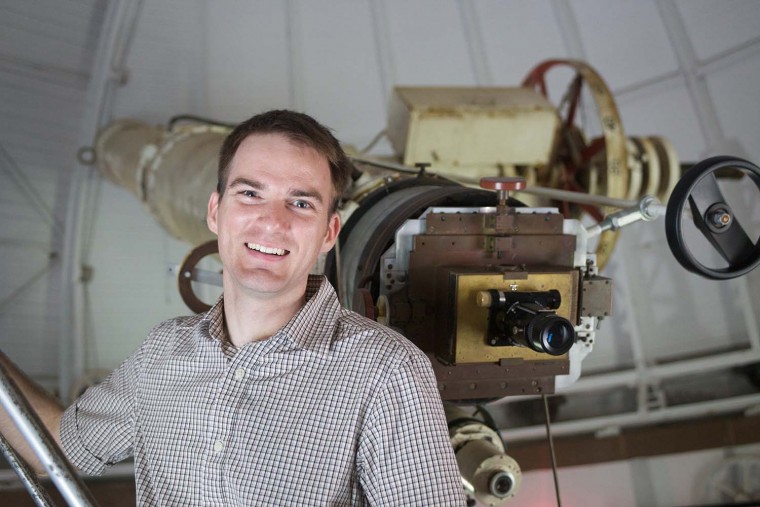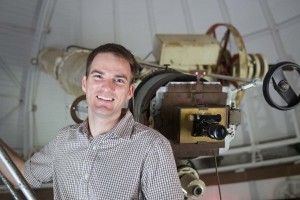Wesleyan-Led Astronomy Consortium Joins Association of Universities for Research in Astronomy

The Association of Universities for Research in Astronomy (AURA), which operates the Hubble Space Telescope, the James Webb Space Telescope, the U.S. National Optical Astronomy Observatory (NOAO), and other major astronomical research facilities in the United States, has elected the Keck Northeast Astronomy Consortium (KNAC)—led by Wesleyan University—as a new member. This historic development represents the first time that liberal arts institutions have been invited to join the association and serves as an important recognition of the value of such programs, not just to education, but also to frontier research in astronomy.

“This is a tremendous recognition of the important impact that the Keck Consortium and our individual institutions have on the astronomy research landscape, and it literally gives us a seat at the table in terms of influencing the future of astronomy in the United States,” says Seth Redfield, associate professor and chair of astronomy at Wesleyan. “This is a validation of our impact in research and preparing future generations of astronomers (many of whom go on to PhD programs or postdocs or faculty positions at the large research institutions already on the board of AURA),” Redfield adds. “We are thrilled to have a voice from smaller institutions in shaping the future of our field.”
KNAC is a group of eight liberal arts colleges in the Northeast with strong small astronomy programs that have collaborated for a quarter of a century to improve undergraduate education for astronomy students. Although originally funded by the W. M. Keck Foundation, KNAC is now funded by contributions from member institutions and the National Science Foundation (NSF), under its Research Experiences for Undergraduates program. The members are: Colgate, Haverford (including partnership with Bryn Mawr), Middlebury, Swarthmore, Vassar, Wellesley, Wesleyan, and Williams. Professor Redfield is the principal investigator of the NSF grant funding KNAC and will represent the consortium on the AURA governing board.
“We warmly welcome the Keck Northeast Astronomy Consortium to AURA,” said Matt Mountain, president of AURA. “KNAC offers AURA an exciting opportunity to expand our membership to a powerful consortium of colleges with a collective faculty deeply committed to undergraduate education and astronomical research.”
Within the KNAC schools, there are currently 25 permanent faculty or staff members and 2 postdocs engaged in astronomical or related research. Over the last 25 years, the consortium faculty members have mentored about 620 undergraduate student research projects, including both summer and academic year exercises.
AURA was founded in 1957 by a group of U.S. universities to create astronomical observing facilities available for use by all qualified researchers from U.S. institutions and universities on the basis of scientific merit.
AURA’s Space Telescope Science Institute is responsible for the science mission for the Hubble Space Telescope, the science and operations for the James Webb Space Telescope, and the MAST data archive.
AURA’s nighttime ground-based facilities include the Gemini Observatories, the Large Synoptic Survey Telescope (LSST) under construction in Chile, and NOAO. The National Solar Observatory (NSO) is AURA’s solar center and is managing the construction of the Daniel K. Inouye Solar Telescope (DKIST) in Hawaii.

